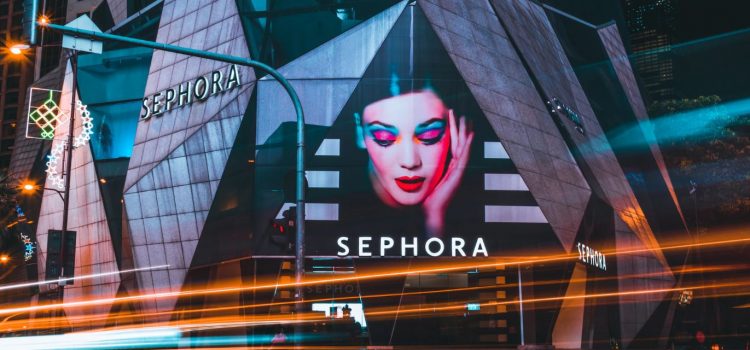
This is a free excerpt from one of Shortform’s Articles. We give you all the important information you need to know about current events and more.
Don't miss out on the whole story. Sign up for a free trial here .
What are some creative uses of AI in business? How can AI improve the customer experience?
Top global brands like Coca-Cola, Sephora, and Walmart are leveraging AI to innovate customer engagement and streamline company operations. From formulating new products to predicting demand, AI is changing the way businesses operate.
Below, we’ll go over five companies and how they use AI in unique ways.
5 Uses of AI in Business
Artificial Intelligence (AI) isn’t just for researchers and developers anymore. Top global brands are using the technology to create soda flavors, facilitate virtual makeovers, and help customers pick out the perfect pair of precision-fit sneakers. Let’s take a look at five creative uses of AI.
1. Coca-Cola: Leveraging AI for Engagement
Coca-Cola is using AI technology to formulate new products and increase consumer engagement in several ways:
- Co-creating a new soda flavor. In 2023, Coca-Cola became the first company to co-develop a soda flavor, Y3000, with AI.
- Entering the augmented reality (AR) realm. Coke promoted Y3000 using generative AI (GAI) technology from Stable Diffusion.
- Empowering creators to design with AI. In partnership with OpenAI, in 2023 Coca-Cola invited creators to use language model GPT-4 and image generator DALL·E to design original artwork incorporating Coca-Cola branding for its “Create Real Magic” contest and personalized holiday cards.
2. Sephora: Enhancing Customer Experience
Sephora began using AI in 2013 to enhance the customer experience. Key AI-driven tools the company now uses include:
- ChatBots to improve customers’ access to relevant services and product information and book makeup appointments.
- A Virtual Artist feature, which uses facial recognition to allow customers to try on makeup and do step-by-step custom makeup tutorials.
- A skin care analysis tool that performs deep skin layer assessments using UV optical scans.
3. Nike: Enabling Shoe-Fitting and Automation
Nike has made significant AI investments in recent years to improve customers’ experience and company operations, using the technology to:
- Power apps that enable precise shoe-fitting.
- Predict and place popular products in locations where demand is greatest, reducing the time it takes to get products to customers.
- Hyperautomate technology operations to bolster productivity and reduce costs.
4. Amazon: Embedding AI Across Operations
Amazon has deeply integrated AI across its operations, employing the technology to:
- Make personalized product recommendations based on customers’ purchase history and browsing behavior.
- Conduct voice-assisted shopping. Alexa, Amazon’s AI assistant, enables customers to purchase products using voice commands in 15 languages across 80 countries. Alexa also provides buying suggestions and reminders.
- Speed deliveries by:
- Forecasting global daily demand for 400 million products to identify potential order hotspots.
- Assessing and mapping delivery routes based on real-time traffic and weather conditions.
5. Walmart: Leveraging AI in Superstores
Walmart, the world’s largest retailer, is leveraging AI to improve consumer experience and enhance store and supply chain operations:
- Shopping assistant chatbots compare different products, offer personalized recommendations, and help customers with tasks.
- Generative AI tools enable customers to:
- Visualize products virtually in 3D.
- Refine web and app search functionalities for more precise, tailored results.
- See rankings of product attributes as well as summaries of reviews.
- AI-enhanced augmented reality apps allow retail workers to assess restocking needs remotely.
Looking Ahead
Some experts say that as large brands expand AI use to enhance consumer engagement and user experience and streamline company operations, smaller industry players will likely follow suit to stay competitive. Others argue that businesses must do so to future-proof themselves and survive in the rapidly changing digital landscape.
However, they warn that companies must proceed with caution while tapping AI’s innovative capacities—especially with generative AI tools that, while promising, can give inaccurate and unpredictable results. Brands must remain vigilant about these limitations to protect their reputation.

Want to fast-track your learning? With Shortform, you’ll gain insights you won't find anywhere else .
Here's what you’ll get when you sign up for Shortform :
- Complicated ideas explained in simple and concise ways
- Smart analysis that connects what you’re reading to other key concepts
- Writing with zero fluff because we know how important your time is






